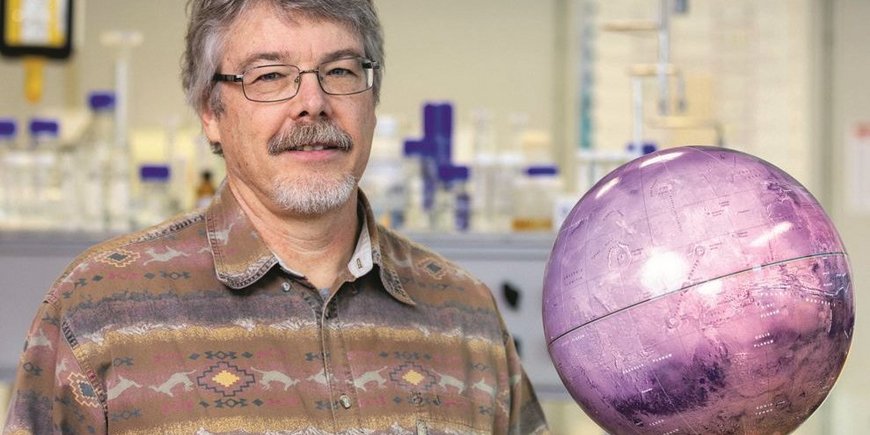A research group led by Dirk Schulze-Makuch, scientist in GFZ section Geomicrobiology and professor jointly appointment by GFZ, Leibniz Institute of Freshwater Ecology and Inland Fisheries, and Technical University of Berlin at the Centre for Astronomy and Astrophysics at TU Berlin, is working with the project 'PortPath. A Portable Device for Detecting Pathogens' on a new approach for the automated detection of pathogens. The focus is on the pathogen that causes cholera. For this project, Schulze-Makuch has now received a Proof of Concept Grant from the European Research Council ERC.
More than 140,000 people die annually from Vibrio cholerae, the pathogen that causes cholera. This is mostly the result of water resources contaminated with the bacterium. The disease occurs mainly in low-income countries. Current detection methods are complicated, lengthy, and expensive.
The PortPath project aims to develop a mobile, inexpensive, and user-friendly module consisting of hardware and software that can be used to quickly and cost-effectively analyse whether pathogens are present in a water sample. The hardware is based on the latest developments in computer technology, the software uses machine learning strategies. Schulze-Makuch: "During development, we place particular emphasis on ensuring that the mobile 'PortPath' unit can also be operated by non-medical personnel and laypersons. This way, it could also be used in poorer countries affected by water contamination”.
The astrobiologist has been investigating the occurrence and distribution of pathogens since 2004. In a study recently published in the journal Science of the Total Environment, Dirk Schulze-Makuch and his team presented the results of a field investigation in which dangerous pathogenic bacterial strains were found in mud volcanoes on Trinidad, using a traditional, complex method. The pathogens included those known as multiresistant hospital germs. These, it was found, must have been introduced by surface water and threaten the country's agriculture and people's health.
The Proof of Concept Grant supports projects in the phase of testing the practical applicability. The researchers now want to use it to review the concrete technical feasibility and to build a first prototype. In addition, a business plan for economic use is planned to be developed. (ak)
Further information:








![[Translate to English:] Torsten Sachs in front of a climate station on a field](/fileadmin/_processed_/3/9/csm__TorstenSachs_bearbeitet_GS_4a1365ef84.jpeg)

![[Translate to English:] left image flood at the Ahrtal: image from above, several houses are flooded; left image:: Heidi Kreibich;](/fileadmin/_processed_/4/4/csm_Bild2_9af0130e9f.png)



![[Translate to English:] Start der Vega Rakete](/fileadmin/_processed_/6/4/csm_20231201-kachel_Vega-VV23-launch_ESA-CNES-Arianespace_706716b68c.jpeg)









![[Translate to English:] Poster exhibition at the Brandenburg Hydrogen Day at the GFZ, some participants in the foreground](/fileadmin/_processed_/6/5/csm_Erster_Brandenburgischer_Wasserstofftag_GFZ_402fcec95e.jpeg)
![[Translate to English:] Group picture of the participants](/fileadmin/_processed_/9/4/csm_20231108_CAWa-Workshop-Tashkent_Gruppenbild_99ea779d8a.jpeg)

![[Translate to English:] [Translate to English:] Hörsaal](/fileadmin/_processed_/e/6/csm_H%C3%B6rsal_e21ac645fb.jpeg)


![[Translate to English:] The Delegations in the Historic Library on the Telegrafenberg. In the back there are from left to right, the Dutch Ambassador for Germany, Ronald van Roeden, the Dutch Minister for Education, Culture and Science, Robbert Dijkgraaf and the scientific director of the GFZ, Susanne Buiter.](/fileadmin/_processed_/d/b/csm_Kachel-2_9eba4b4212.jpeg)

